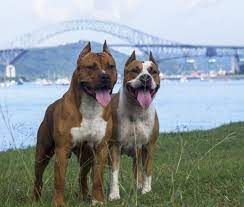Due to the different exposures of our pets in our various environments, most of these domesticated animals tend to catch viral or common diseases for animals. Our canine friends typically show the first few signs of sickness, such as lethargy and cough, which can also be early warnings of the dangers of the illness. One of the most common examples of infections applicable to canines is Tracheobronchitis in dogs, most commonly known as kennel cough. It is a common airway infection for dogs and is commonly highly contagious. Kennel cough came from a bacterium called Bordetella Bronchiseptica M, which is also identified as Bordetella.
In most scenarios, once the pet is infected with Bordetella, they are also most likely to get infected with another viral infection such as canine adenovirus, canine distemper virus, canine herpes virus, parainfluenza virus, and canine reovirus. With kennel cough, dogs tend to consistently sound as if they have a large honk. Tracheobronchitis can be acquired once our poor pets have intense exposure to poorly ventilated areas. It can also be obtained through cold temperatures and exposure to dirt, smoke, and dust. Lastly, this can be triggered by stress caused by traveling.
Kennel cough is somehow easy to determine in dogs. In order to identify this type of sickness within your pet dog, you must know the symptoms that may occur once they may be infected by this illness. With that, here is a list of signs and symptoms of kennel cough. First on the list is a persistent and highly intense cough that often sounds like they are choking that is usually accompanied by a reverse sneeze which is a cough-like sound created by our furry animals. A reverse sneeze is usually a sign of irritation in the throat of our canine pet. Some of these pets also have other uncommon symptoms, such as moist eye discharge, casual sneezing, runny nose, lethargy, loss of appetite, and high body temperature. This may just vary for every pet, depending on how the virus had affected them or what part it had immensely taken effect on.
In most cases, kennel cough can end within a week or two of continuous rest. Although kennel cough can be treated even without medication, this rest must be accompanied by healthy eating and intense hydration as it may remain for five to six more weeks for older dogs, especially if they have other serious medical conditions. For faster alleviation, it is suggested that the dogs take medications that help reduce the effects of Bordetella. There are different types of medications for kennel cough, and its method of delivery to the patient also varies. It can be administered through an injection, a nasal mist, and a medication that must be taken orally. This way, our furry pet would suffer less as his or her situation gets a lot better. Additionally, it is also recommended that the infected canine friend be prevented from interacting with other furry animals to avoid transmission of this disease among different pets.
Kennel cough is present in specific areas where that are uncleaned, unsettled, and full of dogs as bacteria come from different origins. In order to prevent kennel cough, areas where our pets usually stay must be generally cleaned to avoid the growth of bacteria. In addition, pet owners must avoid intense interactions between their pets and other animals, especially if they have no idea where the other animal came from before getting close to their pets. Moreover, pet owners must ensure a routine of baths for their pets to make sure that they keep themselves sanitary. Furthermore, what matters the most is to make your pet feel comfortable and loved all throughout their lifetime.

